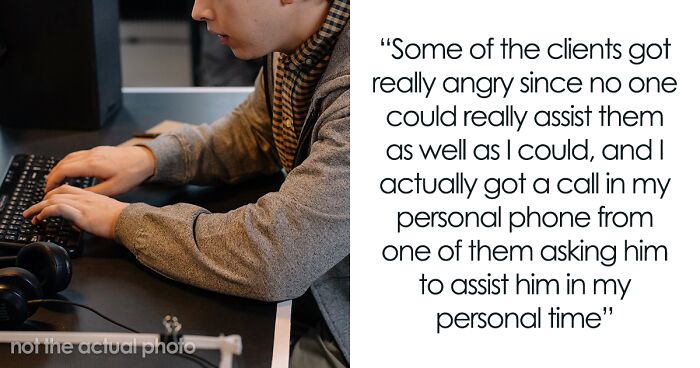
Boss Refuses To Approve Time Off For Exemplary Employee Since Too Much Important Work Depends On Them, So They Maliciously Comply
Recently, Redditor Holiday_Control7243, who worked for a big accounting firm right after college, turned to the Malicious Compliance subreddit to share an incident that his boss probably still remembers to this day.
In a lengthy post, the author shared how he handled many important duties, gained the company’s trust, learned to optimize his work during the coronavirus pandemic, earned loyal clients, and achieved the highest number of sales.
But as soon as the Redditor went on vacation, things started going downhill at work. “So when I went on vacation I turned off all of my automated tasks, and this was a big deal since it was the end of the month and my boss would need all my reports completely updated.”
He added that “they had to put 5 people to do my tasks so that they could finish the reports, which delayed the work of that team, and the reports were late and lacked a few things that mine had.”
Now, the moment Holiday_Control7243 got back from holiday, the boss told him he was no longer allowed to take time off at the end of the month ever again. Malicious compliance followed.
After a boss didn’t allow their exemplary employee to take time off when he wanted, the employee served malicious compliance to teach him a lesson about valuing employees more
Image source: cottonbro studio (not the actual photo)
Image source: Craig Adderley (not the actual photo)
Image source: Medienstürmer (not the actual photo)
Image source: Holiday_Control7243
We live in a society where employers expect their workers to deliver more than what’s in their job contracts. No wonder so many overworked and burnt-out employees quit or practice quiet quitting, despite the cost of living crisis and rising inflation.
“We do need to ask some questions over who demands the ‘overwork’ in the first place,” Dr. Audrey Tang, a chartered psychologist and author of multiple books, including “Be A Great Manager Now“, “The Leader’s Guide to Mindfulness,” and “The Leader’s Guide to Resilience,” told Bored Panda.
She argues that “someone who stays up all night to finish a report (without being asked to) and produces something which is accepted as a similarly high standard as the person who hammered it out in an hour is going to feel far more exhausted and likely less appreciated than said ‘hammerer’”. Dr. Tang added that this doesn’t mean that the quality of the product is not the same.
Another aspect of work which has huge potential to cause the sort of feelings which often lead to “quiet quitting” and burnout, Dr. Tang argues, are jobs which require “emotional labor.”
“Emotional labor was defined by Arlie Russell Hochschild in 1983 as a socially constructed behavior where a professional manages his or her ‘…feeling to create a publicly observable facial and bodily display…’ Hochschild proposed, those ‘norms’ are defined by ‘display rules’ that performers of emotional labor might share (eg. a nurse’s ‘display rule’ may be presenting as an approachable and sympathetic person – even if s/he’s just been shouted at by the person s/he’s trying to help).”
The author shared more details about the whole situation in response to these comments
More people took the opportunity to share their thoughts about this story
And as soon as he left, the company went bankrupt and everyone started clapping.
Load More Replies...What gets me is that he specifically states he automated his job. If he can automate it there are others that can as well. This would make him redundant in that role and they could just automate it. Companies have been this for years. This has to be a fake one again or should I say as usual
It did sound like his work was less standard automation, not typical excel spreadsheet. He said he spoke 4 languages, and he probably worked closely with specific clients because of that; might have had specific knowledge that helped him build his reports if they were less number crunching
Load More Replies...And as soon as he left, the company went bankrupt and everyone started clapping.
Load More Replies...What gets me is that he specifically states he automated his job. If he can automate it there are others that can as well. This would make him redundant in that role and they could just automate it. Companies have been this for years. This has to be a fake one again or should I say as usual
It did sound like his work was less standard automation, not typical excel spreadsheet. He said he spoke 4 languages, and he probably worked closely with specific clients because of that; might have had specific knowledge that helped him build his reports if they were less number crunching
Load More Replies...
 Dark Mode
Dark Mode 

 No fees, cancel anytime
No fees, cancel anytime 







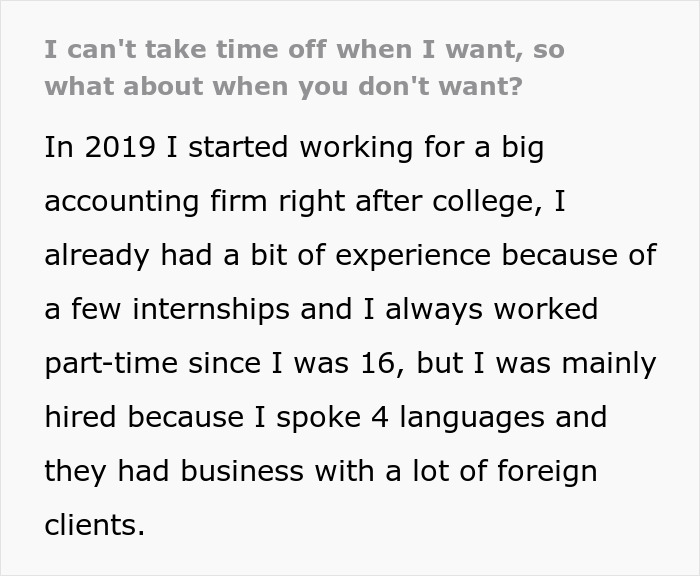
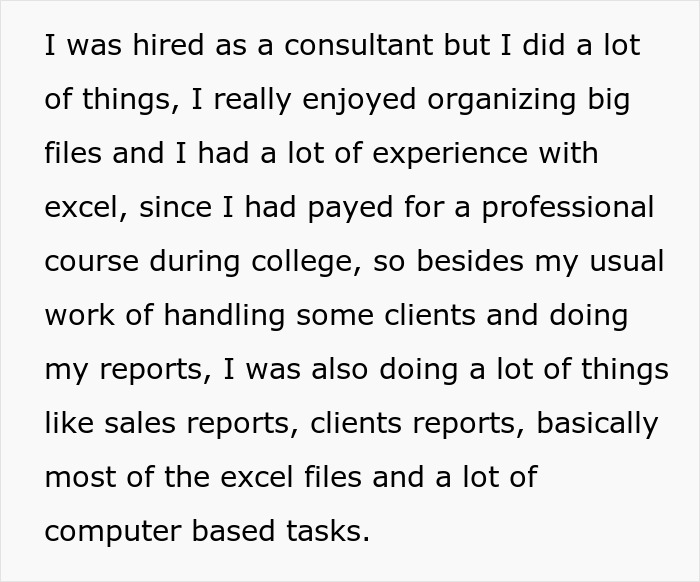
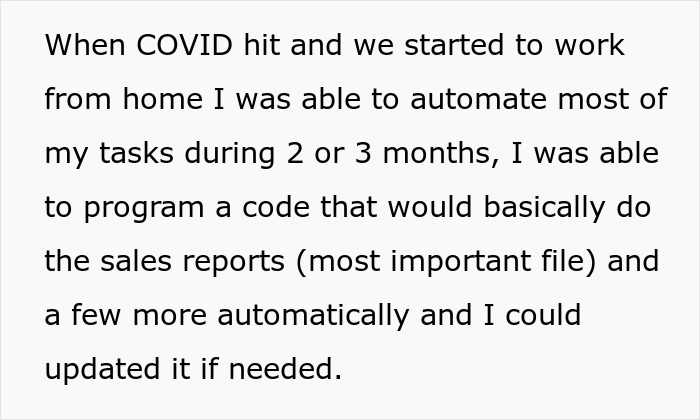
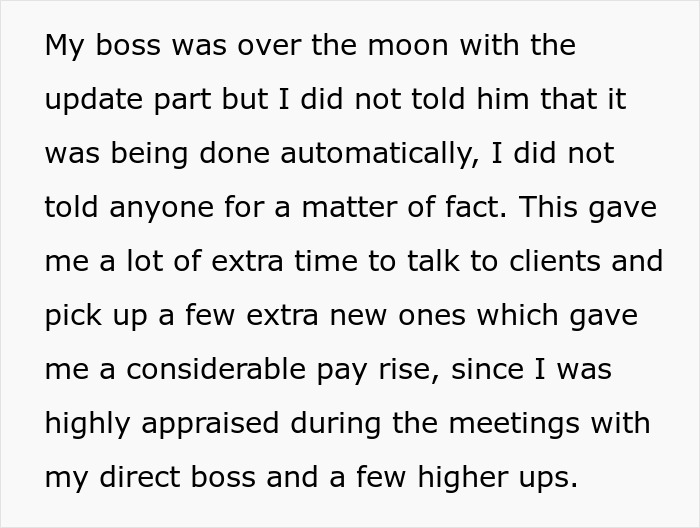
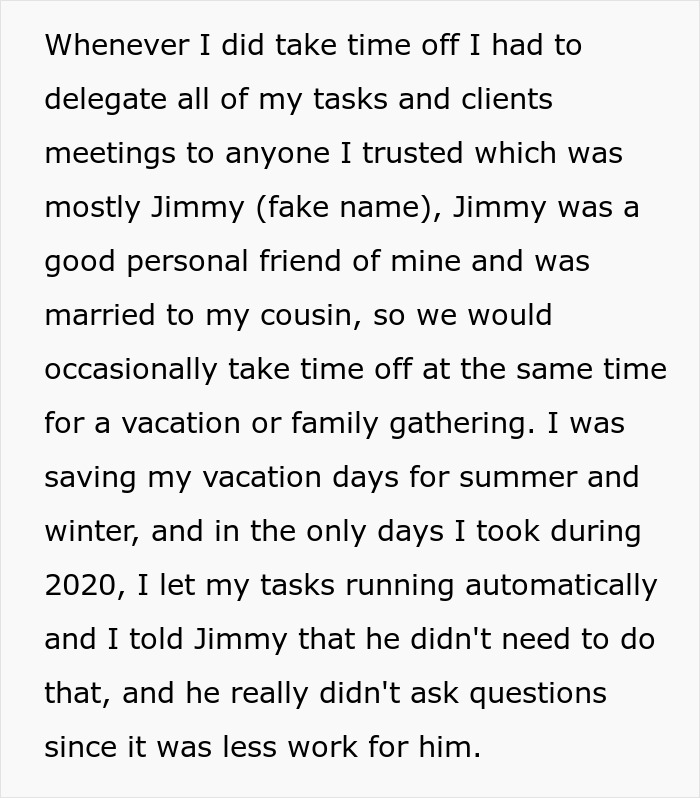
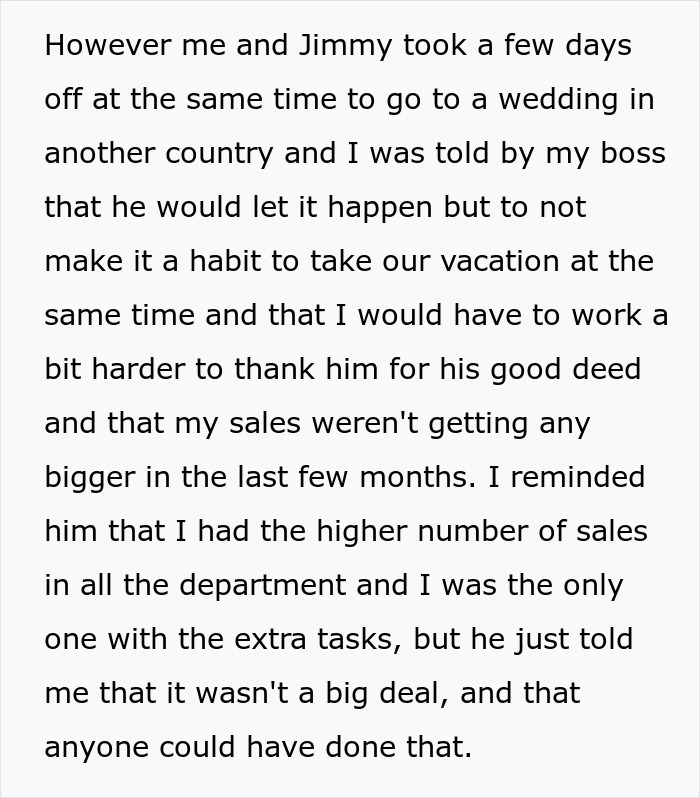
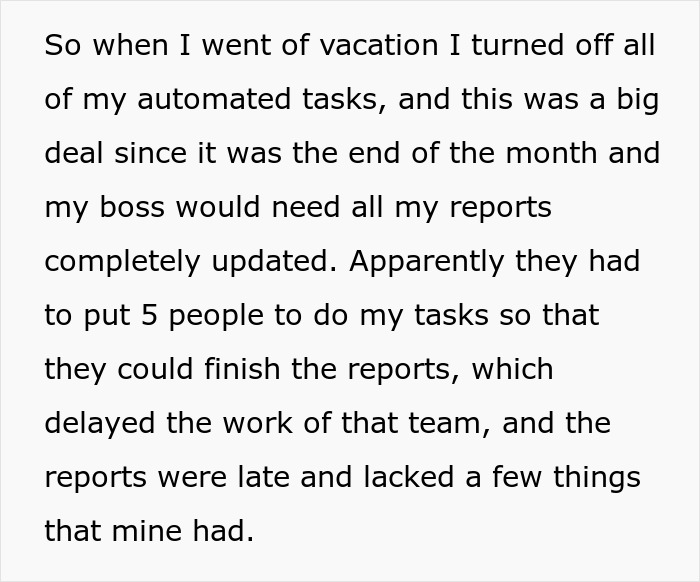
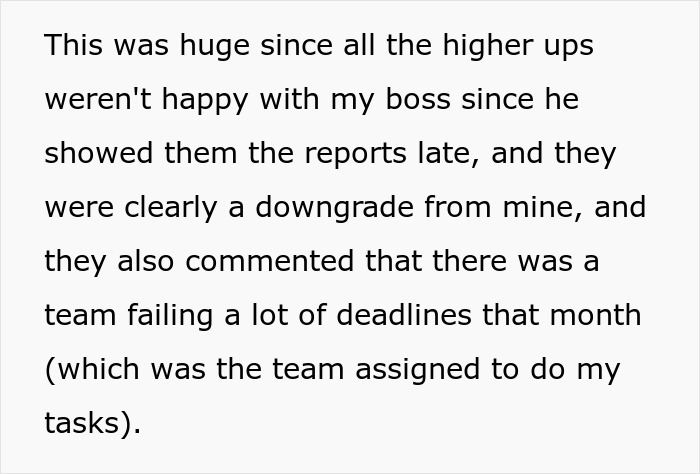
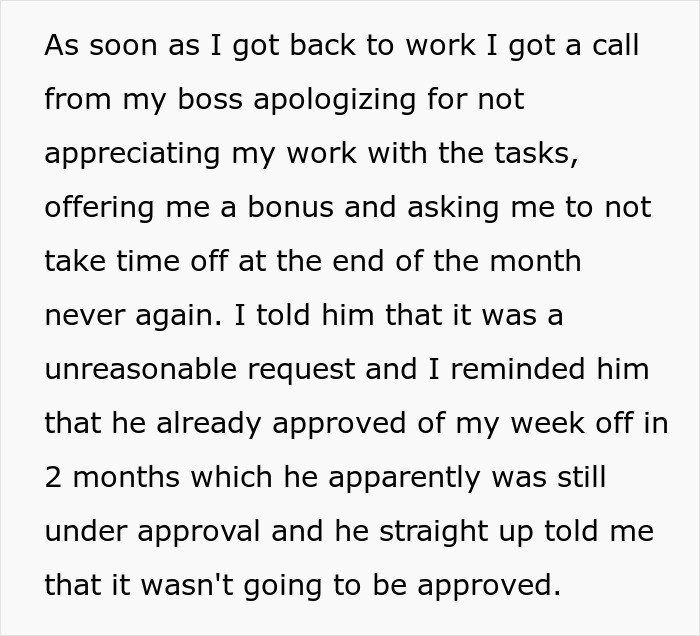

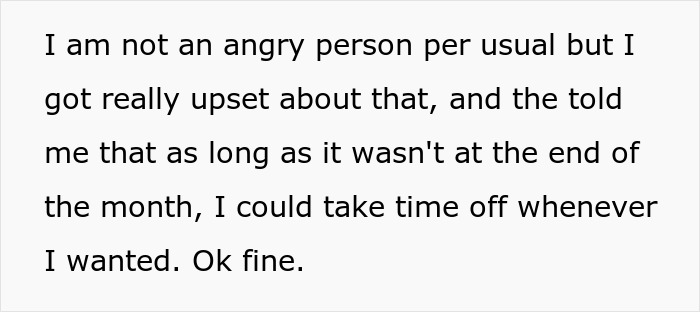
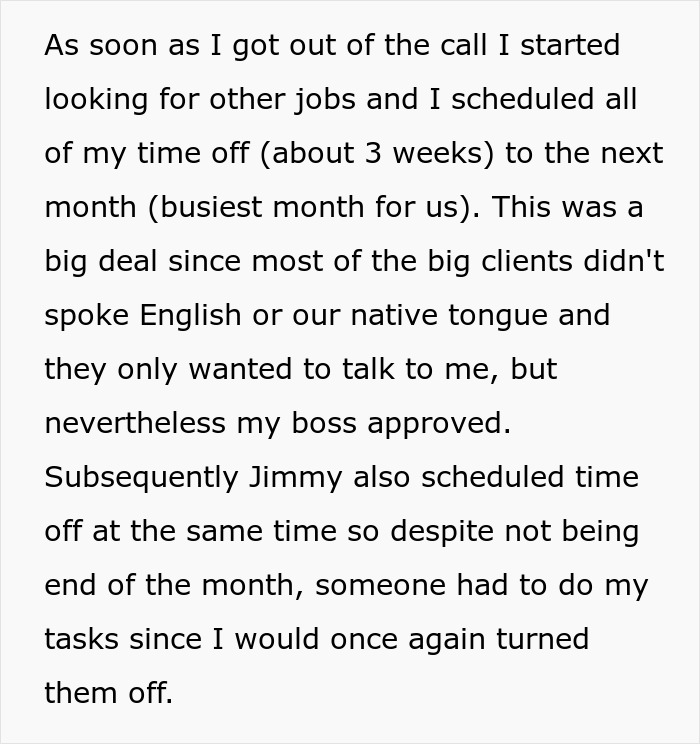
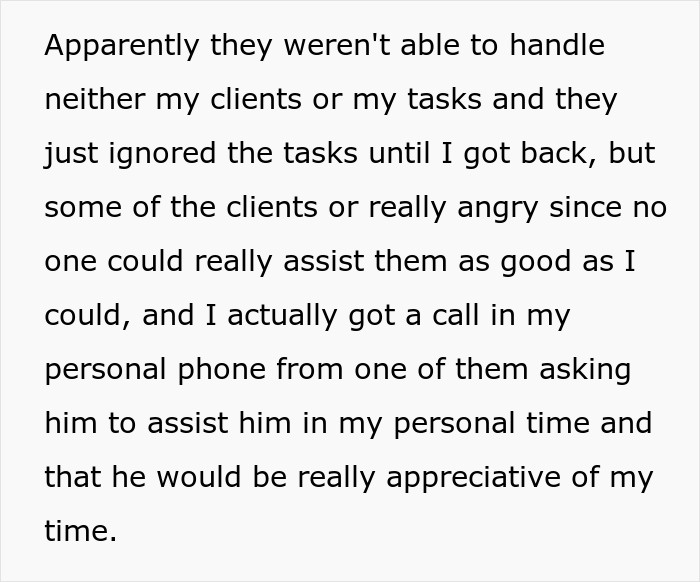
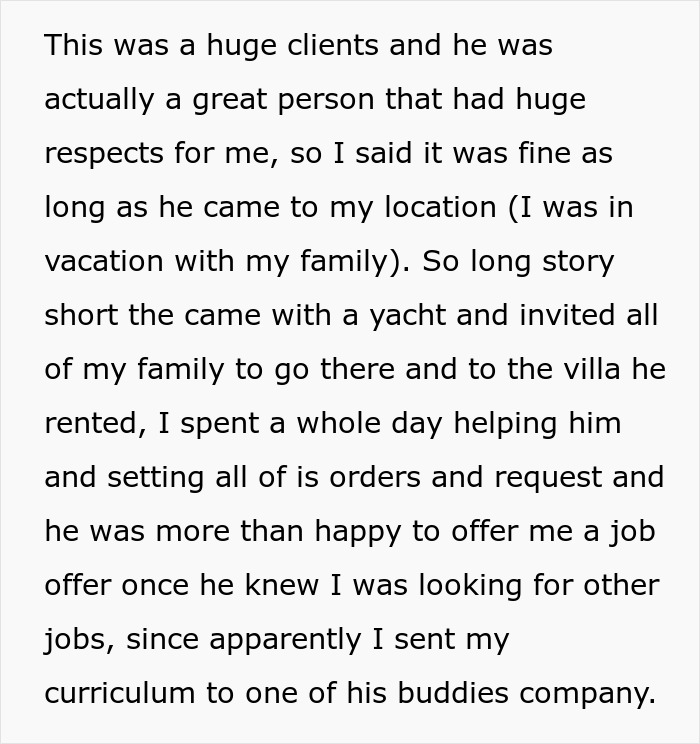

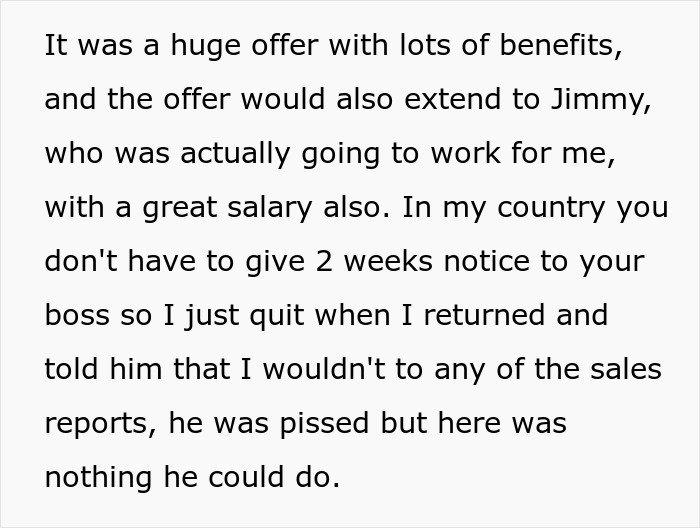
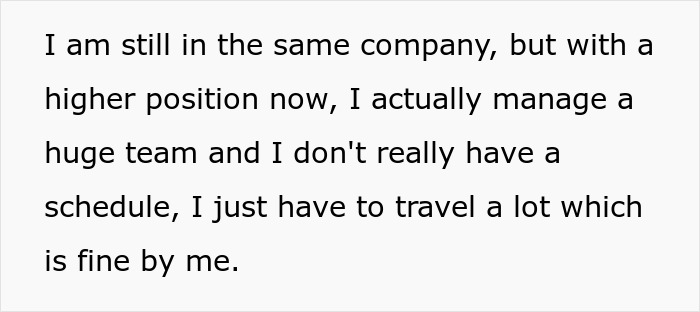
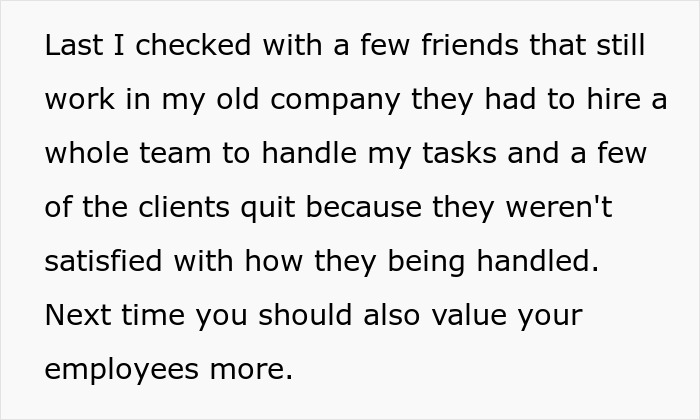
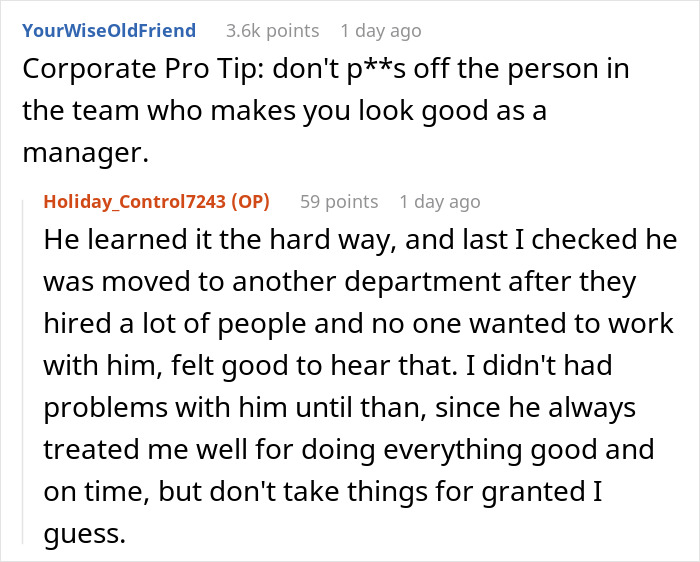
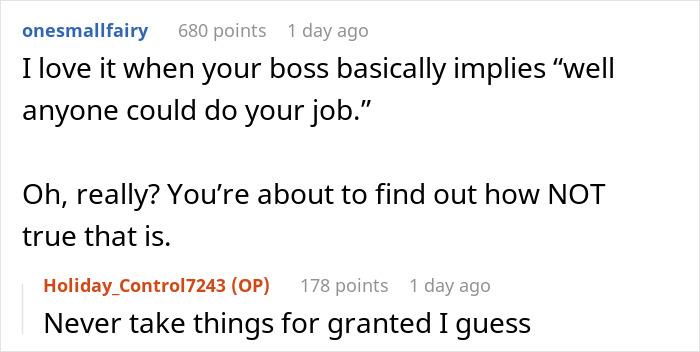
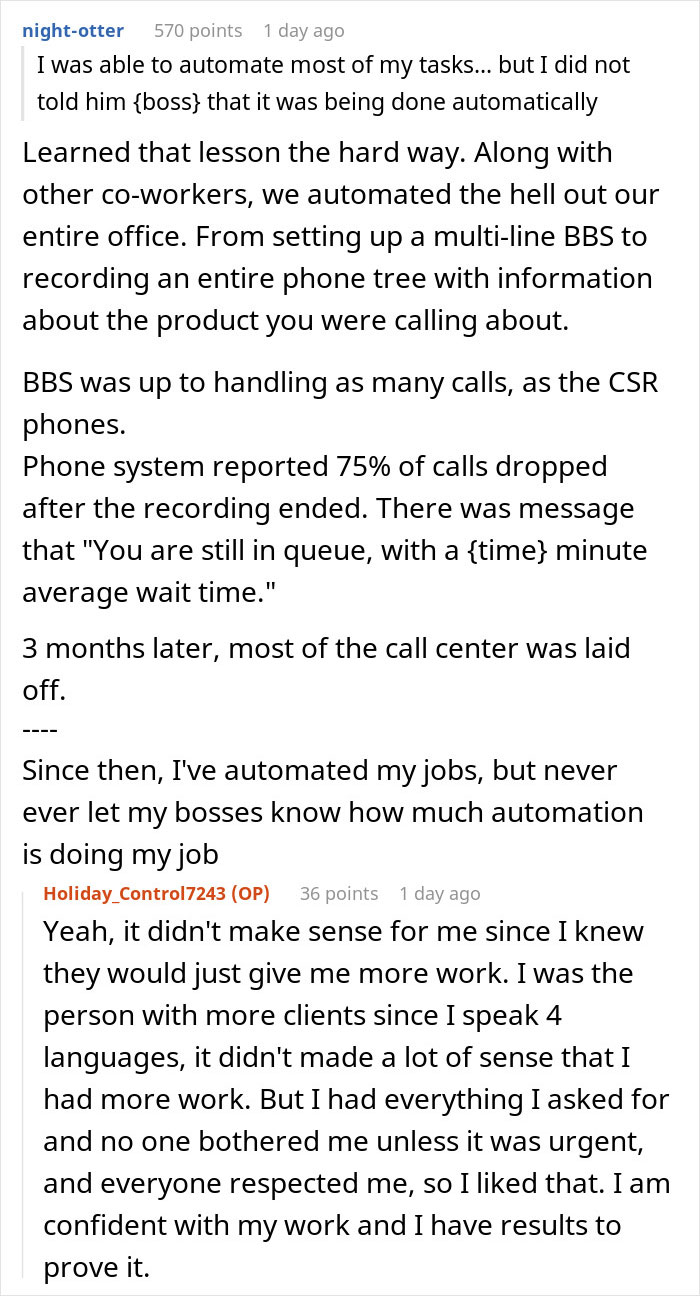
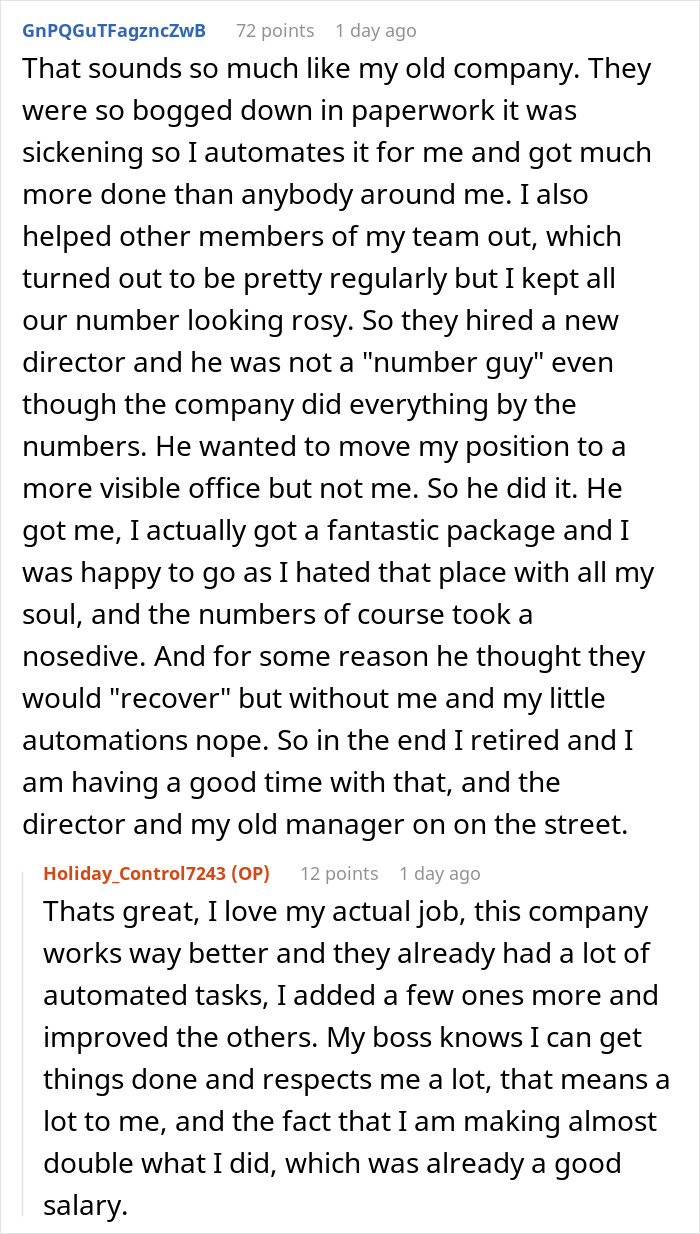
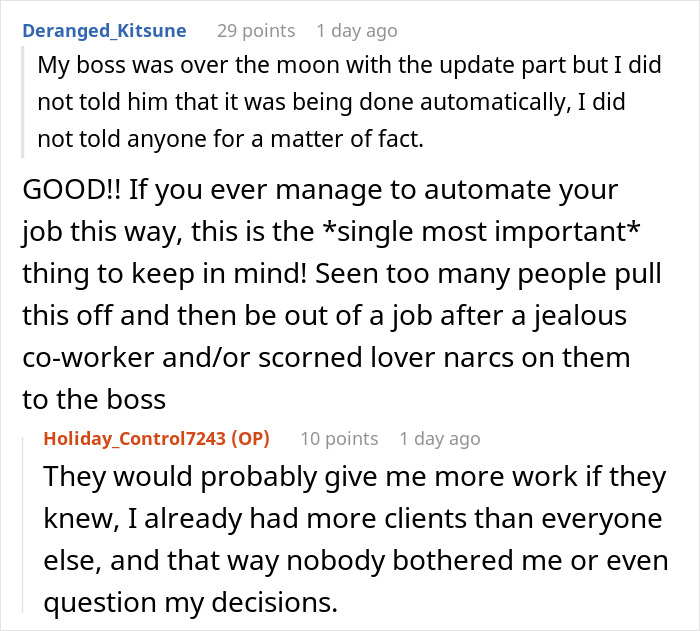
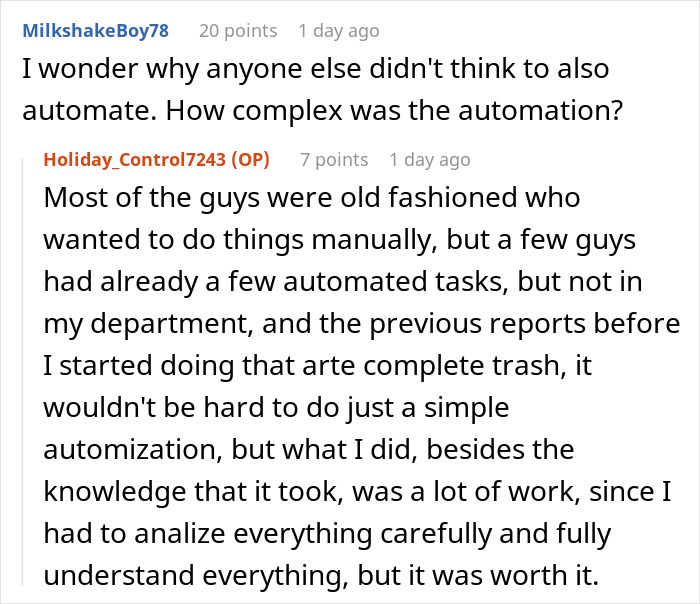

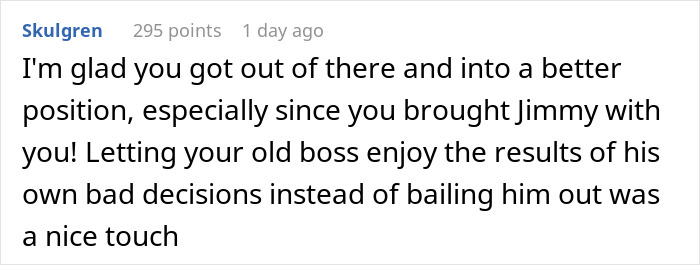
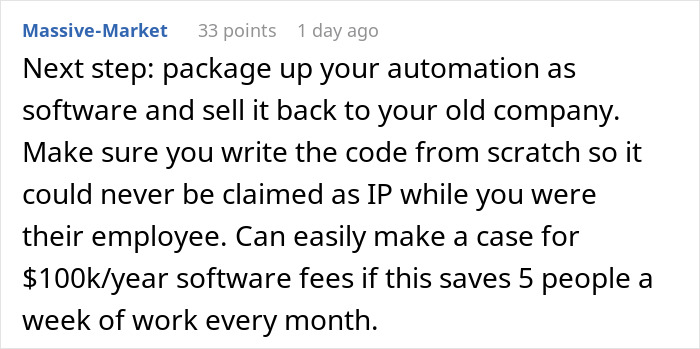















































87
33